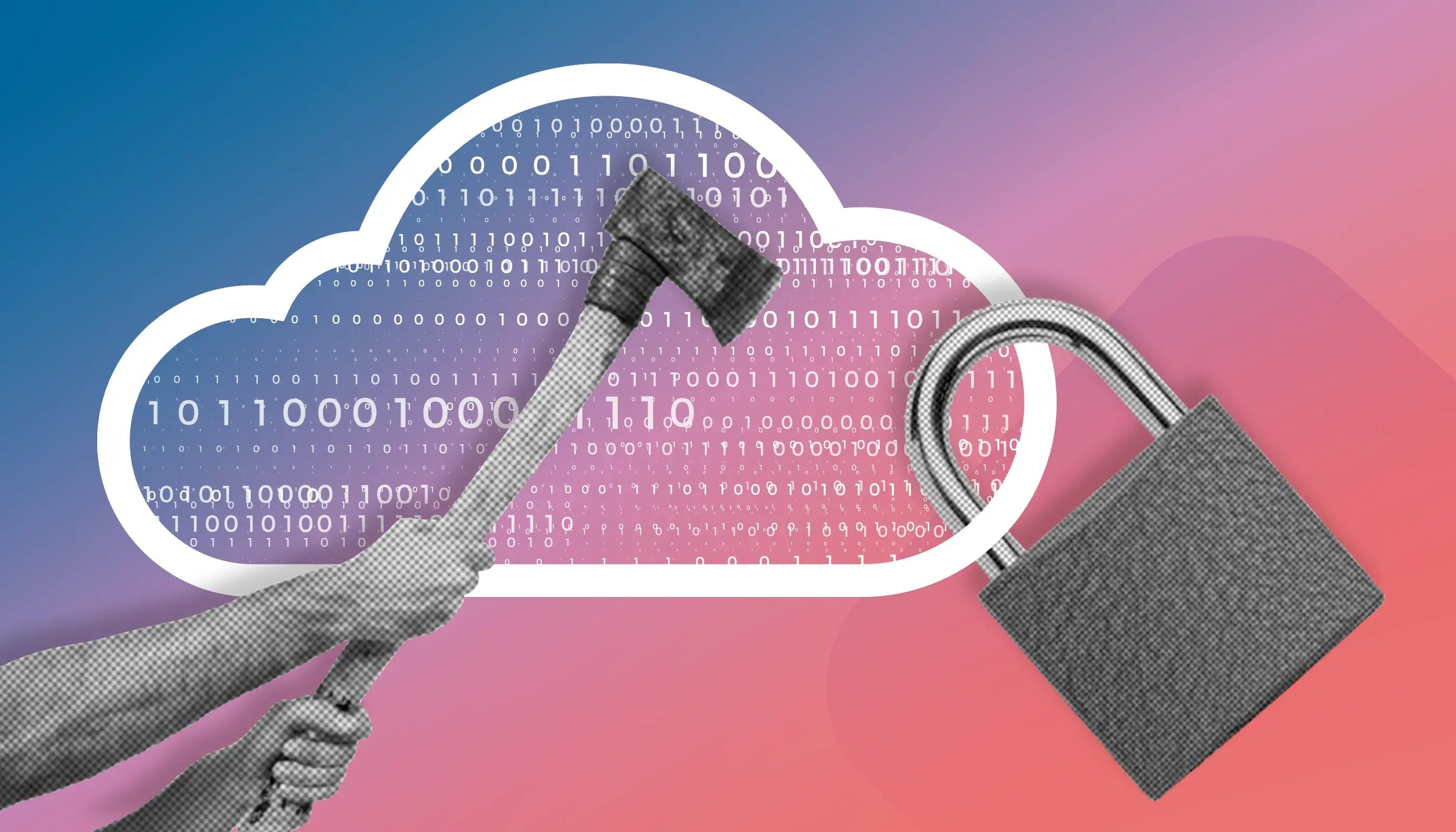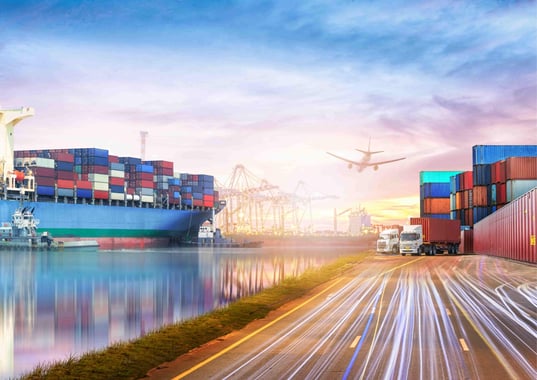Data security in freight transport
With the increasing digitalisation of the transport sector, data security, has become a major concern, especially in the transport of goods.

Every day in a sector that is in process of digitalisation, thousands of data circulate through complex computer systems, connecting shippers, carriers and customers. This critical information, including contracts, delivery routes and customer information, are all potential targets for cybercriminals. And if this data is compromised, the consequences can be disastrous for companies, both financially and in terms of their reputation.
In this context, it is therefore crucial to understand the specific challenges related to data security in road freight transport (RFT), as well as the emerging solutions and technologies that help mitigate these risks.
Specific challenges to data security in freight transport
Nearly 80% of SMEs suffer at least one attempted cyberattack each year and the transport sector, which is undergoing rapid digitalisation, is no exception to this threat. Indeed, with its many interconnected players and systems, it represents a prime target for hackers, including:
Data theft
Data theft is an ever-present threat in freight transport. Cybercriminals often target companies in this sector because they handle large amounts of sensitive data, including contract information, cargo details, customer information, and financial data. This information, if stolen, can be sold on the black market or used for fraudulent acts, such as account takeovers or identity theft.
The consequences of data theft in the freight transport sector are grave. Besides the immediate financial loss, this can lead to a loss of customer trust, which is difficult to recover. In some cases, this can also lead to legal disputes, especially if the company does not comply with data protection regulations, such as the GDPR in Europe.
Cyberattacks on data management systems
Cyberattacks pose a major threat to data management systems in freight transport. Some of the most common types of cyberattacks include ransomware attacks, where hackers encrypt company data and demand a ransom to decrypt it, and Distributed Denial of Service (DDoS) attacks, which overload systems to the point of rendering them unusable.
Data management systems in transportation are often integrated with Internet of Things (IoT) technologies to track cargo in real-time. If these systems are not properly secured, they can become easy targets for cybercriminals. A successful attack could not only disrupt logistics operations, causing delays and additional costs, but also corrupt or destroy critical data, making it impossible to trace goods or manage inventories effectively.
In addition to operational impacts, cyberattacks can have legal repercussions. If sensitive data is compromised, the company may be held liable under data protection laws, which can result in stiff fines and additional regulatory costs.
Additionally, companies affected by cyberattacks often have to invest significant resources to address security breaches and restore compromised systems.
As can be seen, an effective approach to cybersecurity in the transport of goods already starts with the identification of the risks that threaten your information system and your sensitive data. It is then a question of deploying the necessary protective measures, whether technical, organisational, legal or human, to guarantee their security.
To avoid financial penalties and maintain the trust of your partners and customers, it is therefore essential to establish a clear security policy in order to comply with current regulations, such as the GDPR.
Data Security Solutions
To counter these different threats, several solutions can be implemented. They act in a complementary manner to strengthen data security throughout the transport process.
Data encryption during transport
Data encryption is an effective method to protect sensitive data as it is transferred between different systems. By encrypting the data, even if it is intercepted by malicious third parties, it remains inaccessible without the appropriate decryption key, thus ensuring its confidentiality.
Encryption not only ensures the confidentiality of information but also its integrity, preventing any alteration during transfer.
Using Firewalls and Security Software
Firewalls and security software are essential to protect computer systems from outside attacks. Together, they form a first line of defence to secure your company's IT infrastructure.
Firewalls filter incoming and outgoing network traffic, blocking intrusion attempts and unauthorised access. Security software, on the other hand, detects and neutralises potential threats, such as viruses and malware (it is important to remember, however: once in place, these tools must be regularly updated to function optimally and deal with new threats).
A robust security strategy also involves constant monitoring of systems to quickly detect any suspicious activity.
Staff training on good data security practices
Data security is not just about technological solutions. Human errors, such as sharing sensitive information through unsecured channels, pose a major risk.
Staff awareness and training are therefore crucial to minimise risks. Regular training helps reduce risks by making employees aware of potential threats and educating them on security protocols to follow, such as using strong passwords and being vigilant against phishing attempts.
Beyond the solutions mentioned above to secure your operations in the transport of goods, you must have a cybersecurity incident response plan. This plan should include rapid detection of breaches, isolation of compromised systems, and effective communication with your partners.
By regularly carrying out incident simulations, you strengthen the resilience of your systems and improve the responsiveness of your teams to cyberthreats.
Emerging technologies in data security in the RFT sector
New solutions are emerging to strengthen data security in freight transport. Here are some of the key technologies that are transforming the RFT sector:
Blockchain in freight transport
Blockchain is a technology that provides increased traceability and security of data throughout the supply chain. Thanks to its decentralised and unalterable nature, it guarantees that information on transactions and shipments cannot be modified, thus reducing the risks of fraud and data manipulation.
The integration of IoT in the RFT sector
The Internet of Things (IoT) plays a crucial role in monitoring transport conditions in real-time.
IoT sensors can, for example, track parameters such as temperature, humidity and vibrations of freight. In the event of an anomaly, such as an unexpected temperature variation, managers are immediately alerted, enabling rapid intervention.
This integration also helps detect attempts at intrusion or data manipulation, thereby improving the overall security of operations.
Transport APIs: Maximising Security by Choosing Reliable Partners
APIs, essential for interoperability, facilitate secure integration between transport systems. However, each API represents a potential vulnerability because they open access points to the system that can be exploited by malicious third parties to introduce security breaches, access sensitive data, or disrupt the operation of services.
It is therefore crucial to select API partners that adhere to high security standards to avoid the risks of cyberattacks and maintain the integrity and confidentiality of the information in your systems.
By working with trusted API providers who adopt robust security protocols and proven risk management practices, you ensure enhanced protection of the data exchanged, thereby reducing the risk of vulnerabilities.
Choose certified API partners with a reputation for rigorous security practices to ensure smooth integration while strengthening the protection of your sensitive data.
In conclusion
With the increasing digitalisation of the transport sector, data security has become crucial: as freight transport becomes more digital, the risks posed to sensitive data increase.
It is therefore essential to deploy robust solutions allowing you to protect this data and maintain the trust of your customers.
Fortunately, by combining technologies like blockchain, IoT, and APIs, you can significantly strengthen the security of your systems and better protect yourself against emerging threats.
Upply, Your partner for RFT data security
At Upply, we are committed to protecting your data throughout the supply chain. We understand that information security is crucial in the transport industry, which is why our platform is designed to ensure the confidentiality and integrity of your data at every step.
Our integrated platform ensures data protection throughout the supply chain.
On one side, you have Upply Smart, which allows you to easily analyse and compare your transport costs, and on the other side Upply Connect, which allows you to collaborate directly with shippers, carriers and freight forwarders through a single interface.
We have also developed the Upply API, which is specifically designed for large carriers, shippers and TMS (Transport Management System) solutions. By integrating our API into your TMS system, you gain access to numerous opportunities to optimise your operations, strengthen your customer relationships and grow your business.
Our technology not only ensures efficient management of your activities, but also guarantees maximum security of your data against cyberthreats.
With our SOC2 and EU GDPR certifications, we offer you optimal protection for your sensitive information, respecting the strictest standards in terms of security and confidentiality.
Discover Upply
Want to find out more about Upply solutions?
Get in touch with an Upply expert to find out how we can help you improve the efficiency of your transport operations.
Articles that might interest you


Explore the latest market trends with Market Insights
- In-depth studies on freight transport, supply chain and international trade
- White papers and regular reports for constant strategic intelligence
- Analyses by our recognized industry experts


